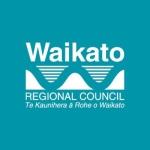Taupo inspections reveal some cases of over-grazing
Aerial and ground-based inspections show most farmers in the Lake Taupo catchment have not been excessively grazing their cows this winter, but some isolated cases of over-grazing are concerning Environment Waikato.
Over-grazing during the wet winter months causes severe damage to farm soils and significantly increases the risk of excessive nitrogen from farming operations leaching into Lake Taupo. Too much nitrogen is a major cause of reductions in water quality.
Environment Waikato’s Taupo implementation programme manager Jan Hania said it was very pleasing that the inspections showed the vast majority of farmers in the Taupo catchment were not over-grazing their stock.
“But some localised areas of over-grazing are a real worry. We need farmers to realise how serious the consequences of over-grazing can be in terms of erosion of good quality farm land, and for nutrient run-off into the lake.
“We don’t want the actions of a few compromising all the work and funding that is going into protecting the water quality in Lake Taupo.”
Under new rules to protect the lake, farmers need to apply for a resource consent to keep farming in the catchment.
Mr Hania said Environment Waikato staff planned to work with farmers about the new requirements and the need to protect the lake, and would provide advice and education about working with the new system.
“Environment Waikato understands the new system for managing nitrogen leaching at Lake Taupo is innovative and complex. We expect people will take time to get to grips with it. Our preferred approach is working to gain compliance through a cooperative educational approach with farmers, but ultimately Environment Waikato does have enforcement options.”
The council’s Taupo staff are available to provide advice and assistance to farmers on working with the new rules. Please contact either Faith Barber or Derek Ryan on 0800 800 401 for advice.
